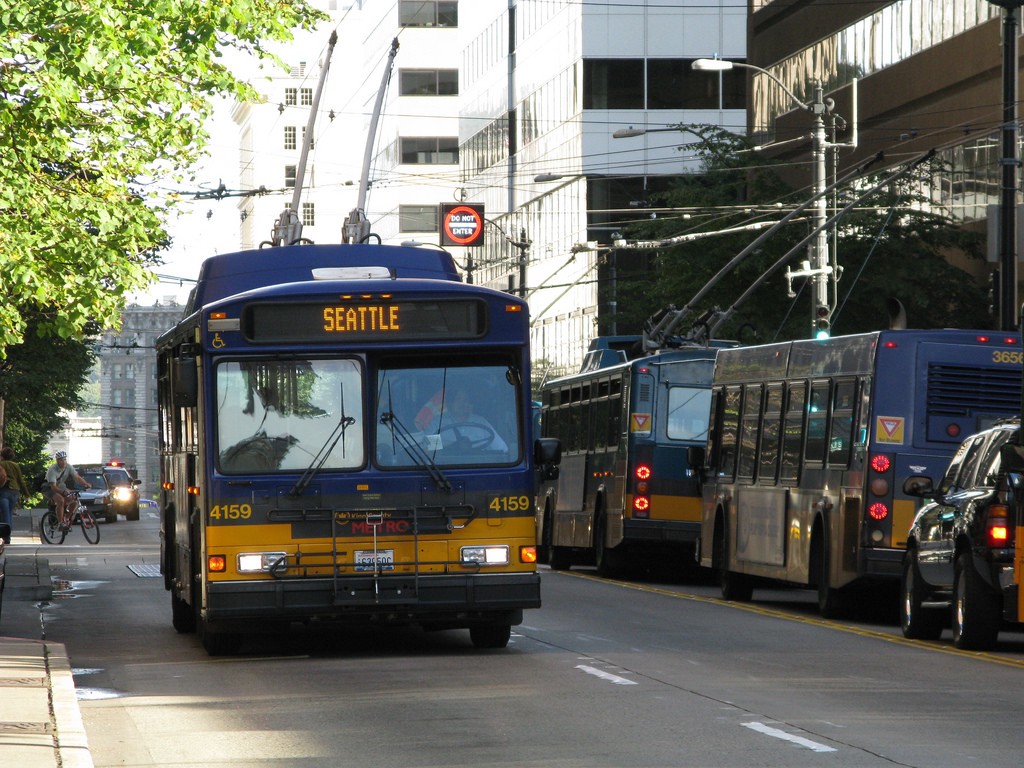How Many Ubers and Lyfts Can I Take Before it Costs More Than a Car?
Is it worth it to save twelve hours a month not taking the bus?

When I wrote my Monday Check-In, I noticed that I outsourced two different tasks: printing my writing samples at FedEx Office, and getting to my writing class via Lyft.
I have absolutely no problem doing all of my printing at FedEx Office instead of buying a printer, but I felt a little guilty about taking the Lyft. I’m wondering if it’s time to stop feeling guilty and start thinking of Lyft and Uber as larger versions of FedEx Office: specifically, cost-effective methods of getting around town instead of buying a car.
There are two big problems with this comparison, of course. First, I’m comparing $0.57 worth of printed paper to a $20 Lyft ride. Second, if I want to get something printed, I only have two options: buy a printer or go to a print shop. If I want to get across town, I have at least three options: buy a car, take a Lyft/Uber/taxi, or take the bus.
The $20 I paid for my Lyft ride this weekend would have bought a month’s worth of bus rides. However, it also took 20 minutes, and the bus would have taken nearly 90—which is something I’m thinking about more and more as I consider how to put down roots in Seattle.
The Cost of Putting Down Roots
For example: this Thursday, I went to an arts event where I got to meet and talk with a bunch of great people. It was so much fun, and it was also the sort of thing I want/need to be doing more of.
The event started at 5:15. To get there via bus, I needed to stop my workday at 3:45 (and walk out the door at 4:00 to arrive, late, at 5:30). Yes, I had enough bus time to read Gabby Rivera’s excellent Juliet Takes a Breath, which is one of the best books I’ve read this year, but I also had to cut over an hour out of my workday. That’s time I have to make up on the weekend or one fewer assignment I can pick up, and in this case I chose the latter. (I already had the writing class booked for this weekend, so I knew I wouldn’t have a lot of extra time.)
So, essentially, taking the bus ride cost me money. Taking a Lyft would have cost me money too, but I might have come out ahead if I had kept working and then paid for the carshare.
I’m at the point where I’m starting to ask myself whether I should always take Lyfts and Ubers, or maybe whether I should always take them to professional events (and then count them as tax deductions?). Here’s how I see it:
If I do end up taking one Lyft/Uber per week, round-trip, it’ll probably cost me $40–50 a week, or an extra $200–250 a month.
If my average bus ride takes 90 minutes and my average Lyft/Uber ride takes 20 minutes, I’ll also save two hours and 20 minutes per week, or eleven hours and 40 minutes per month.
I get a full day back, whether I spend it working or relaxing or whatever. (You know me. I’ll probably spend it working.)
I know that spending $250 a month on Lyfts and Ubers is less expensive than buying a car—which I’d have to do with a car loan anyway, so there’d be that plus the loan interest, the insurance, the gas, and the parking.
But taking an extra $250 out of my paychecks along with the 22 percent I’m putting towards taxes and the 20 percent towards debt and the 10 percent towards savings and the $1,800 I need for rent and bills and so on seems almost impossible.
It might mean that I’m stuck on the bus until I pay off my debt, or it might mean that I need to be very judicious about when I choose to use carshare services. Maybe I take them to events, so I don’t have to end my workday at 3:45, but I take the bus back.
Still, I keep telling myself I shouldn’t feel guilty about using Lyft and Uber, at least not in terms of the “spending $20 when I could have spent $2.50 on the bus” part. (I still feel kind of guilty about the gig economy aspect, and the “not investing in public transportation” aspect, and the idea that someone else is driving me around, and the bit where they’re entirely responsible for every aspect of the experience—including the cost burden of owning and maintaining the car—but a cut of their pay goes to the carshare service anyway.)
What would you do? Take the Lyft, or take the bus?
[Edit: Billfolder icwhatudidthere reminded me in the comments that “they’re entirely responsible for every aspect of the experience” isn’t true; it erases the considerable work involved in building and maintaining the app and the infrastructure required to keep services like Lyft and Uber up and running. Well noted.]
Support The Billfold
The Billfold continues to exist thanks to support from our readers. Help us continue to do our work by making a monthly pledge on Patreon or a one-time-only contribution through PayPal.
Comments